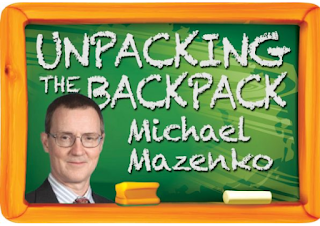Forgiveness is the heart of Catholic doctrine. It can also be the virtue least likely practiced.
When I heard of the controversy regarding Regis Jesuit High School’s decision to fire two staff members over publication of a pro-abortion-rights editorial in the student newspaper, my first inclination was to support the action taken by the school administration. Regis is a private Catholic institution whose position on abortion is very clear. If students and teachers don’t agree with, support, and adhere to the guidelines and expectations, then they are free to attend and work elsewhere. However, upon closer examination of the story and their clearly stated guidelines regarding student media, it became obvious the administration of Regis is clearly wrong in this case.
In a recent piece of commentary for the Denver Post, two former Regis students criticized and challenged the school’s action as both inappropriate and inconsistent with stated policies and precedent in the school’s student media program. Harvard University student Madeline Proctor and Seattle University student Sophia Marcinek were editors-in-chief of Regis Jesuit’s Elevate magazine when they attended the school. As has been widely reported, the students explained how Regis High School’s clearly stated policy establishes that “school officials… shall not practice prior review or to censor any student media.” Yet, following the publication of an opinion piece supporting the “right of choice,” school officials violated their own policy, recalling the entire magazine and firing the two faculty sponsors. Such action is not only hypocritical but an egregious overreach of power and a betrayal of trust between the school, its students, and the staff.
As a former altar boy and a graduate of Catholic education, I understand and believe deeply in the institution of faith-based school. For a brief time in my adolescence I considered pursuing the Jesuit path. A key to that interest was an advisor who explained to me how the Jesuits are scholars. First and foremost, the Jesuit order is pious and devout in the Catholic faith, but it is also an order committed to academic and intellectual rigor. The Jesuits are not afraid of debate. The Jesuits do not hide from intellectual challenge. The Jesuits embrace the pursuit of scholarship and inquiry. Clearly, the Jesuit history of practicing and deepening their faith through education in the arts, sciences, and philosophy would seem to indicate an openness to debate and discussion. Nothing could be more important and relevant to cultivating young minds to be astute thinkers.
Thus, the Regis administration’s reactionary response is all the more problematic for its abdication of the spirit of education and the tradition of the Jesuit Order. An equally troubling condition of the current censorship is the school’s hypocritical rejection of not just its policy regarding student media but also the contradiction of the values and practices the school publicly preaches and promotes. In the Denver Post, Proctor and Marcinek point out how the school’s own website claims “We do not teach our students what to think; we teach them how to think.” That’s a dubious promise at best. The school also establishes as its mission the responsibility of being “called to create environments in which our students may encounter and engage multiple points of view that are presented thoughtfully and respectfully.” Clearly, nothing could be more blatantly inaccurate in this case.
In the 1990s a popular fad among Catholic and Christian young people was the wearing of bracelets which asked “What would Jesus do?” It was a reminder that the Christian faith is not simply a label – it is an expectation. Especially in the case of Catholic dogma, the Church expects the faithful to follow the path of Christ in their actions, choices, and daily living. Faith is more than just claiming belief and attending weekly services. It’s a way of life. We should, to the best of our ability despite our inevitable and inherent flaws, try to live as He lived.
So, in the case of a ninth grade student who writes an opinion piece for her school newspaper advocating for the right of choice, what would Jesus do? In response to that column which was cleared for publication by two staff members who simply followed established school policies, what would Jesus do? I’m fairly certain Jesus would never stifle the thoughts, ideas, and questions of students. And, other than the money lenders in the Temple, I’m positive Jesus wouldn’t fire anyone.



